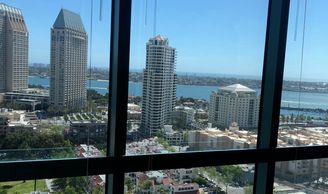Anoxic brain injury is not an injury triggered by a blow to the head. However, it is an injury that happens due to insufficient oxygen reaching the brain. Although the death of cells is a normal process in the human body, the simultaneous destruction of several numbers of cells can leave an individual with diminished brain function. Anoxic brain injury becomes fatal in the event the oxygen deprivation continues.
Causes of Anoxic brain injuries
Anoxic brain injury happens when anything deprives the brain of oxygen. The following are some general causes which include;
- Oxygen deprivation during birth: Especially when the baby becomes stuck in the birth canal. It may also occur when the umbilical cord wraps around the baby’s neck
- A distressing attack such as being choked
- A stroke
- Choking
- Anaphylactic shock caused by allergic reactions
- Swallowing vomit
- An unexpected blow to the windpipe
- Survival of the brain during oxygen deprivation
People have different brains, and therefore, the level of oxygen deprivation depends on the injury. Although the causes of anoxic brain injury hinder the transportation of oxygen to the brain, there are specific triggers that completely block the supply of oxygen to the brain.
Averagely, the brain can survive about four minutes without oxygen. Therefore, one needs to act immediately during stroke or when they experience an injury that cuts off oxygen to the brain.
Brain damage can begin after 30 seconds of oxygen deprivation. After two minutes, damage to the brain becomes almost inescapable. Prompt medical attention is required to help reduce the chanced of potential long-term harm.
Signs and symptoms
There are telltale symptoms that are evident immediately after the occurrence of anoxic brain injury. They include;
- Change in behavior
- Confusion
- Dizziness
- Vomiting
- Loss of consciousness
- Severe headache
Anoxic brain injury can result in varying long-tern effects. These effects depend on the part of the brain affected. For example, if the injury affects the area that controls speech, the individual may experience difficulty in speaking or remembering words. There are several symptoms of anoxic injury. One person’s symptoms may be different from another person’s. Common sign to watch out for include;
- Behavior or personality change
- Difficulty in performing familiar tasks
- Relationship changes
- Trouble with memory
- Trouble remembering familiar people or animals
- Phobia
- Recurrent headaches
- Mysterious pain in the limbs
- Degree and Extent of Anoxic Brain Injury
The extent of Anoxic brain injury occurs in four categories. The classification provides insight to long-term prognosis of the brain injury;
- Diffuse Cerebral Hypoxia: mild to moderate brain injury where there is minimal brain impairment as a result of low blood oxygen levels.
- Global Cerebral Ischemia: caused by complete deprivation of oxygen supply to the brain and can lead to catastrophic harm.
- Focal cerebral ischemia: often caused by stroke. Only one area of the brain is deprived of oxygen. Other regions of the brain may be unharmed.
- Cerebral infarction: This is brain injury caused by a stroke which deprives multiple regions of the brain of oxygen and can lead to serious side effects.
Treatment and prognosis
Treatment often focuses on the identification of the cause of injury and prevention of possible recurrence immediately after an anoxic brain injury. For example, a stroke may be caused by a blood clot or any other cardiovascular-related issue that may be prevention by the use of blood thinners and a change in lifestyle. After this, the prognosis of the injury will depend on the degree of injury, access to health care, age, and adherence to a recovery program. Some of the ways that may be used to enhance the outcome of the treatment include;
- Speech therapy
- Family support and mental health counseling
- Education on the patient’s condition
- Occupational therapy to help an individual to re-learn skills such as eating and shopping
- Nutritional and exercise support and counseling.
- Support groups that help regain lost skills.
Reference:
Cerebral Ischemia

Brad Nakase, Attorney

AVVO Clients’ Choice Award 2019
Justia Highest Rating Honor 10
AVVO Highest Rated Lawyer 10
Business Trial Lawyer since 2005. Proven Results.
Free Consultation
$0 Upfront

There is no money upfront.
$0 Unless We Win

No Fee – Unless We Win
98% Success Rate

98% of clients’ cases won.
Insurance Insider

I’ve worked at a prestigious international law firm, Bremer Whyte et. al., serving major insurance companies by defending insurance companies and their insureds who were sued for millions of dollars.
I Care

“In both cases, he combined skills and passion to help these clients to maintain their self sufficiency and dignity.” SDLVP
My success is measured in the real differences made to my clients’ quality of life. I focus on achieving the most exceptional and fairest compensation for my clients.
Reference:
Cerebral Ischemia
